How Clean Beauty Is Revolutionizing the Makeup Industry
flareAI
Quick Listen:
Imagine gliding on a foundation that not only evens out your skin tone but also infuses it with hydration, all without a trace of synthetic irritants. This seamless fusion of glamour and wellness defines the clean beauty revolution, reshaping a cosmetics sector long dominated by quick fixes and hidden hazards. Valued at hundreds of billions globally, the industry now bends toward brands like Liht Organics, where innovation meets integrity in every application.
Many women feel trapped by makeup that hides flaws but risks irritation and hidden toxins. This daily choice weighs heavily, dimming confidence over time. Liht Organics invites you to embrace beauty differently. With up to 90% USDA-certified organic ingredients, our vegan, cruelty-free products deliver vibrant color and gentle care, letting you glow with confidence, knowing your skin is nurtured, not compromised. Shop Now!
Redefining Beauty: The Core Principles of Clean Makeup
Clean beauty transcends fleeting trends; it represents a rigorous standard for formulations that prioritize health alongside aesthetics. At its essence, it means eschewing harmful additives in favor of over 80% organic elements think nutrient-rich botanicals and ethically sourced minerals that support skin vitality rather than undermine it. Liht Organics exemplifies this standard, producing high-performance makeup in the United States and Singapore that delivers bold coverage while functioning as a subtle skincare ally.
Today's discerning consumers reject superficial claims, insisting on forthright disclosures that reveal the science behind each shade. The realization has dawned that daily applications can accumulate, influencing everything from hormonal balance to barrier function. Across dynamic hubs like the United Arab Emirate's vibrant bazaars and Singapore's sleek urban landscapes, this shift manifests in a collective push for products that embody sustainability, ethics, and reliability hallmarks that Liht Organics consistently upholds.
Momentum Building: Key Trends Driving Organic Makeup Forward
Step into a contemporary beauty retailer, and the transformation is palpable: shelves brim with organic options tailored to conscious buyers. This surge is particularly pronounced in priority areas such as the UAE, Singapore, Malaysia, the US, Australia, Saudi Arabia, and India, where cultural reverence for self-care intersects with environmental awareness. A comprehensive analysis from Mordor Intelligence forecasts the clean beauty sector expanding from USD 163.35 billion in 2025 to USD 264.55 billion by 2030, propelled by a steady 10.12% compound annual growth rate. Asia Pacific emerges as the vanguard, securing the largest market share and the swiftest expansion, fueled by climates that necessitate multitasking formulas for moisture and matte finishes alike.
Beyond mere elimination of preservatives like parabens, the evolution emphasizes intelligent integration of therapeutic actives. Ingredients such as aloe vera for calming inflammation or jojoba oil for sebum regulation have become cornerstones in foundations and concealers, effectively merging cosmetic enhancement with dermatological benefits. Liht Organics masterfully incorporates more than 80% clean organic components, fostering an inner radiance that outshines artificial veneers and endures the rigors of daily wear.
Authenticity in origins cements consumer allegiance. In these focal regions, buyers meticulously vet provenance through digital tools, favoring brands that illuminate their pathways from verdant fields to finished palettes. This era of openness starkly contrasts the industry's former veil of secrecy; today, each vial narrates a tale of conscientious craftsmanship, resonating deeply with those who view beauty as an extension of personal values.
In the Spotlight: Liht Organics Leading the Charge
Liht Organics commands attention not through hype, but through tangible excellence. Their portfolio harmonizes vivid hues with natural benevolence, yielding impeccable results minus the typical trade-offs in texture or longevity. Manufactured in the USA and Singapore, these offerings grace key venues: The Green Collective in Singapore for mindful selections, Gold Apple and Faces in the UAE for upscale ethical indulgences, and Namshi's digital lifestyle arena for seamless access to purity-driven essentials.
Consider Singapore's sweltering equator: Conventional cosmetics often falter under humidity, but Liht Organics prevails in real-user accounts, where participants noted enhanced durability alongside supple skin post-trial. Parallel narratives unfold in the UAE's lavish matrimonial scenes, with participants maintaining luminous complexions across extended festivities, their cosmetics serving as unobtrusive guardians of dermal well-being.
Digital ecosystems supercharge visibility. Platforms like Instagram and TikTok host Liht Organic's dynamic presence, where influencers unpack applications that educate on dual-purpose efficacy. Far from peripheral tools, these channels catalyze conversion, morphing casual viewers into dedicated advocates. A single trending clip showcasing a blush deemed "safe enough to eat" can ignite widespread curiosity, drawing legions into the fold instantaneously.
Navigating Obstacles: The Real Challenges in Clean Beauty Adoption
No paradigm shift occurs without resistance. Despite its allure, clean beauty confronts pervasive doubts, with many encountering labels and pondering underlying motives is "organic" a breakthrough or mere marketing veneer? Gaps in ingredient literacy persist, breeding hesitation, compounded by eroded confidence amid prevalent instances of exaggerated eco-credentials.
Premium pricing presents another barrier, as procuring superior plant-derived materials inflates costs relative to mass-produced counterparts, positioning organic eyeliners as indulgences rather than staples. Compounding this, disparate global regulations create labyrinths: Europe's exacting benchmarks clash with America's permissive self-certification, as illuminated in Mintel's observations, where U.S. interpretations hinge on proprietary benchmarks. Asia-Pacific accents hazard-free compositions and exclusions, whereas Western Europe intertwines purity with ecological stewardship. Mastering this mosaic demands unwavering vigilance from innovators.
Nevertheless, these impediments signal opportunities for enlightenment. Liht Organics responds decisively with exhaustive disclosures, detailing compositions exceeding 80% organics to illuminate their prowess. Targeted content on TikTok dissections and Instagram dialogues dismantles barriers, cultivating assurance and evolving skeptics into steadfast supporters.
Future Trajectories: The Expansive Promise of Clean Cosmetics
Data underscores the inexorable ascent. Grand View Research values the worldwide clean beauty arena at USD 8.25 billion for 2023, charting a course to USD 21.29 billion by 2030 via a robust 14.8% CAGR from 2024 onward. North America captured 35.08% of revenues that year, with the U.S. anticipating 14.5% annual progression through 2030. Skincare dominates at 41.70% allocation, yet color cosmetics gain ground women, comprising 83.63% of purchasers, seek pampering pigments. Specialty outlets retain 35.67%, though e-tail surges via Instagram showcases and TikTok trials.
In heritage-rich locales like India and Saudi Arabia, entrenched grooming traditions herald vast prospects. Budget-friendly organics could broaden accessibility, as Australia's sustainability champions advocate for minimal-waste vessels. Liht Organics stands ready, harnessing outlets like Namshi to penetrate these terrains, nurturing enduring bonds via impeccable standards.
Enterprises navigate nuanced economics: Cleaner paths compress profits initially, yet loyalty amplifies recidivism. Credibility crystallizes through candor, elevating transients to promoters. Echoing CAS Insights, the momentum toward botanical actives accelerates, with scholarly and patent outputs on natural cosmetics surging from 2013 to 2023, while circumventing perils like petrochemical derivations, faunal harms, deforestation, metallic catalysts, agrarian displacements, pollution, non-degradables, and traces of 1,4-dioxane or ethylene oxide.
Visionary Horizons: Makeup's Sustainable Renaissance
Project ahead, and clean beauty ascends from niche to norm. Legacy titans hasten to naturalize, but trailblazers like Liht Organics dictate discourse, their ingestible-grade blends elevating expectations. Aspiring entrants should heed: Champion openness, wield social narratives adeptly, and honor nuance such as concealers combating creases concurrent with complexion perfection.
Liht Organics charts a realm where cosmetics transcend disguise, embodying declarations for vital dermis, verdant earth, and liberated self-expression. Amid this metamorphosis, certainty prevails: Archaic residues dissipate. Tomorrow gleams with verdant potential.
Frequently Asked Questions
What exactly is clean beauty makeup and how is it different from regular cosmetics?
Clean beauty makeup prioritizes formulations with over 80% organic elements, featuring nutrient-rich botanicals and ethically sourced minerals while eliminating harmful synthetic additives like parabens. Unlike conventional cosmetics that focus solely on coverage, clean makeup functions as both a beauty enhancer and skincare ally, supporting skin vitality rather than compromising it. This approach combines therapeutic actives like aloe vera and jojoba oil to deliver cosmetic enhancement alongside dermatological benefits.
Why is the clean beauty market growing so rapidly, and which regions are leading this trend?
The global clean beauty market is experiencing explosive growth, projected to expand from $163.35 billion in 2025 to $264.55 billion by 2030 with a 10.12% compound annual growth rate. Asia Pacific leads this surge as the largest market share with the fastest expansion, particularly in regions like Singapore, UAE, Malaysia, and India where cultural reverence for self-care intersects with environmental awareness. This growth is driven by consumer's increasing demand for transparency, sustainability, and products that support long-term health rather than just immediate aesthetic results.
What are the main challenges facing clean beauty adoption and how are brands addressing them?
The primary obstacles include consumer skepticism about whether "organic" claims are genuine breakthrough innovations or marketing tactics, premium pricing due to costly plant-derived ingredients, and confusing global regulations that vary between regions. Brands like Liht Organics are overcoming these challenges through comprehensive ingredient transparency, detailed disclosure of their 80%+ organic compositions, and targeted educational content on social platforms like TikTok and Instagram that build consumer confidence and convert skeptics into loyal supporters.
Disclaimer: The above helpful resources content contains personal opinions and experiences. The information provided is for general knowledge and does not constitute professional advice.
You may also be interested in: Makeup Tips – Liht Organics
Many women feel trapped by makeup that hides flaws but risks irritation and hidden toxins. This daily choice weighs heavily, dimming confidence over time. Liht Organics invites you to embrace beauty differently. With up to 90% USDA-certified organic ingredients, our vegan, cruelty-free products deliver vibrant color and gentle care, letting you glow with confidence, knowing your skin is nurtured, not compromised. Shop Now!
Powered by flareAI.co
شاركي
You May Also Like
-

Discovering Self-Love Through Clean Beauty: A Guide to Nurturing Your Inner and Outer Self
In the journey of self-love, every action, thought, and choice we make towards ourselves can be a powerful affirmatio...
-

The Science Behind Organic Makeup and Pregnancy: A Gentle Choice for Moms-to-Be
wp:paragraph Pregnancy is a wonderful and exciting journey that comes with added responsibilities of ensuring the ...
-
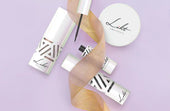
Liht Organics Black Friday: Enhance Your Beauty Routine with Vegan, Organic, and Natural Essentials!
As the holiday season approaches, there’s a sparkle in the air, and we at Liht Organics are thrilled to add a touch o...
-

Organic Makeup That Heals As It Conceals
Liht Organics Empowers Women With Only The Best For Their Beauty NeedsLiht Organics combines the best of both worlds:...
-
![[FEATURE] Liht Organics to debut at TFWA Asia Pacific show](//lihtorganics.com/cdn/shop/articles/1_1.png?v=1759328400&width=170)
[FEATURE] Liht Organics to debut at TFWA Asia Pacific show
‘Organic makeup that’s safe enough to eat’ — Liht Organics to debut at TFWA Asia Pacific show by Hannah Tan | 24 Apri...
-
![[FEATURE] The Singapore-based organic makeup brand is a first-time exhibitor at this year’s TFWA Asia Pacific Exhibition in Singapore in May 2025](//lihtorganics.com/cdn/shop/articles/2_1.png?v=1759328386&width=170)
[FEATURE] The Singapore-based organic makeup brand is a first-time exhibitor at this year’s TFWA Asia Pacific Exhibition in Singapore in May 2025
TFWA Asia Pacific preview: Liht Organics targets expansion in travel retail By DFNI Staff Writer The Singapore-bas...
-
![[FEATURE] Travel Retail Awards 2025 finalists - Best Make-up Product Color-Intense Liquid Lipstick – Liht Organics](//lihtorganics.com/cdn/shop/articles/4_e2f54f0f-fcd1-46e7-9990-fc9d29e35131.png?v=1759328382&width=170)
[FEATURE] Travel Retail Awards 2025 finalists - Best Make-up Product Color-Intense Liquid Lipstick – Liht Organics
Revealed: Travel Retail Awards 2025 finalists By Trbusiness Editor | Wednesday, 23 July 2025 15:21 TRBusiness is th...
-
![[FEATURE] Liht Organics targets expansion in travel retail](//lihtorganics.com/cdn/shop/articles/3_1.png?v=1759328346&width=170)
[FEATURE] Liht Organics targets expansion in travel retail
Organic makeup that’s safe enough to eat: Liht Organics targets expansion in travel retail By Laura Shirk Liht Organ...
-

[FEATURE] Gulf News: TikTok’s strawberry girl makeup trend: How to achieve that rosy glow inspired by Hailey Bieber
Berry, berry, strawberry, love strawberry, like BTS’s J-Hope, the band’s strawberry enthusiast once said. If only we ...
-

[FEATURE] Gulf Business Magazine : Liht-ing it up
Our founder, Nerissa Low was interviewed by Gulf Business, where she discussed her experience launching Liht, an orga...
-

[FEATURE] Daily Vanity: 11 local beauty brands owned by women – you’d be surprised how many of them started in their kitchens!
When we give a shout-out to homegrown beauty businesses, we aren’t just doing it for the sake of supporting local. Th...
-

[FEATURE] Entrepreneur ME : UAE-Based Liht Organics' Nerissa Low On Crafting An Organic Makeup Brand For The Skin-Conscious Consumer
As is the case with the origin stories of so many startups out there, Liht Organics came into being after its founder...
-
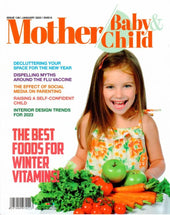
Mother, Baby & Child Editor’s Pick: Liht Organics Lights the Way
Excited to be the Mother, Baby & Child’s ‘Editors pick’ for their choice of Beauty brand.The article outlined the...
-
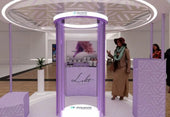
[FEATURE] EmiratesWoman - 8 Fabulous things to do in Dubai this weekend
by SARAH JOSEPHJANUARY 20, 2023Try the UAE’s first virtual reality makeup podium The popular VR-backed makeup exper...
-

Nerissa Low of Liht Organics On The Self-Care Routines & Practices Of Busy Entrepreneurs and Business Leaders
By Maria Angelova, CEO of Rebellious Intl.Date: 4 January, 2023Nerissa Low of Liht Organics On The Self-Care Routines...
-

Liht Organics: Meet the beauty brand that has caught the eye of the Royal Family of Bahrain
By Crystal Lee Digital Editor28 May 2021The world of clean beauty is, ironically, rather murky.That’s because the ter...
-

The latest luxury makeup and skincare drops, including serums, concealers, moisturisers and more
Allisa Noraini21 May, 2021It’s fine to splurge in the name of beauty. This new range of makeup and skincare drops are...
-

These SG Beauty Bosses Are Conquering The World Despite The Pandemic
First Singapore, then the US, China, Germany, Dubai, UK, South Korea, Malaysia, Hong Kong, Thailand, Australia… By...
-

Nerissa Low, Founder at Liht Organics
Written by Callum LaingPosted on December 26, 2020 10 min readNerissa Created Organic Makeup That Actually Improve...
-

Liht Organics – Makeup That Makes You
At Liht Organics, our mission is simple – to provide women (and men) with a safe experience when it comes to beauty s...
-

Why Should We Use Organic Makeup?
We cannot deny that cosmetics is one of our beauty essential item – it enhances our looks and conceals our flaws. Man...
-

Organic makeup and why your skin will love it: Liht Organics founder
By Jolene,July 27, 2020 |7 mins readOrganic make up in Singapore is a trend that is fast-catching on here as we becom...
-

[FEATURE] DC EDIT – Makeup & Confidence: Talking Self-love With Liht Organics’ Founder Nerissa Low
Makeup and confidence — the long, drawn-out fight that many of us have grappled with personally. I’m sure I’m not the...
-

[FEATURE] THE FEMALE CULTURE – I TRIED LIHT ORGANICS AND THIS IS HOW IT WENT
I’m a huge fan of makeup and I love testing out new products so I was pretty excited to get my hands on Liht Organics...
-

[FEATURE] SINGAPORE MOTHERHOOD – The Best Organic and Natural Skincare and Makeup for Pregnant and Breastfeeding Mums in Singapore
Pregnancy is a hormone-volatile period for women. One place where this makes itself seen and felt is on the skin. Som...
-

[FEATURE] AFTER CLINIC HOURS – 21 Back to Beauty Deals in Singapore (2020)
With spas and salons shuttered island wide for two months, I never thought I’d be this desperate for a good old’ Swed...
-

[FEATURE] KUL AL USRA MAGAZINE JUNE 2020
Choosing Pinks & Oranges this summer!Featured: Moisture Burst Lip Glaze in Pink Cupcake.
-
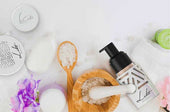
[FEATURE] Award-winning Organic Makeup Brand Liht Organics Gives Back to the Community & Environment During COVID-19
Singapore’s First Organic Makeup Brand with 100% Natural Makeup That Is Safe Enough to Eat Liht Organics promises org...
-

[FEATURE] COSMETICS DESIGN ASIA – COVID-19 ‘WAKE-UP CALL’: SINGAPORE’S LIHT ORGANICS SEES GLOBAL POTENTIAL AMID CLEAN BEAUTY CLAMOUR
Original article at: https://www.cosmeticsdesign-asia.com/Article/2020/06/26/Singapore-s-Liht-Organics-sees-globa...
-

[FEATURE] THE LIFESTYLE COLLECTIVE – BEAUTY SHOULD NEVER BE CRUEL
Date: June 24, 2020Author: Kristen Chen Liht (pronounced as light) Organics is a Singaporean organic makeup brand t...
-

[FEATURE] NÜYOU – 7 ONLINE PLATFORMS TO SHOP FOR CLEAN BEAUTY PRODUCTS
纯净美容(Clean Beauty)的美肤概念,再近几年来越来越受欢迎。随着消费者“爱自己”的美容意识逐步提升,对于用在脸上的所有物品、成分更为关注和讲究。以广义来讲,纯净美容主张使用“干净”成分和无毒配方,让肌肤的可能性损伤减到最小...
-

[FEATURE] COSMOPOLITAN MIDDLE EAST – 3 BENEFITS OF SWITCHING TO ORGANIC BEAUTY PRODUCTS THIS RAMADAN
By Cosmo – May 08, 2020Nerissa Low, founder of Liht Organics, shares the ultimate benefits of going organic this mont...
-

Nerissa Low of Liht Organics: “Seeing Light at the End of the Tunnel; 5 Reasons To Be Hopeful During this Corona Crisis”
Ely Weinschneider, Psy.D.May 8 · 9 min read …It shows us that everyone- whether we are rich or poor, regardless...
-

[FEATURE] AL MARA MAGAZINE APRIL 2020
-

[FEATURE] RetailME April 2020 – Liht Organics Stays Firm On Strengthening GCC Presence
-

[FEATURE] EMARAT AL YOUM NEWSPAPER – 27 MARCH 2020
English Translation:In spring and summer days, women love to have very light makeup in terms of color and texture, ...
-

[ARTICLE] WKND Magazine March 2020 – Know Your Organic Makeup
-

[FEATURE] AVIAMOST DUBAI – March/April 2020
English Translation:Lipstick with organic flowers. Thanks to the rich complex of natural ingredients, the lipstick...
-

[FEATURE] RUSSIAN EMIRATES (MAR/APR ISSUE)
Russian Emirates is a luxury lifestyle and fashion magazine covering information about the UAE, fashion, beauty, j...
-

[FEATURE] – KUL AL USRA MAGAZINE MARCH 2020
GET THE LOOK!
-

[FEATURE] IMAGES Retail ME – Liht Organics Announces GCC-Wide Expansion
Rupkatha Bhowmick Mar 10, 2020 The plan is to reach 75 Liht Organics retail touchpoints by June-July 2020 and touch...
-

[FEATURE] BABY & CHILD SPRING 2020 – NATURAL BEAUTIES
-

[FEATURE] AWQAT DUBAI – Liht Organics: The First Premium Organic Makeup Brand
ENGLISH TRANSLATION:Liht Organics – The First Premium Organic Makeup Brand Liht Organics, a premium organic beauty ...
-

[FEATURE] FRIDAY MAGAZINE – THE RETRO EYELINER LOOK
-

[FEATURE] MOTHER BABY & CHILD – VANITY ESSENTIALS – THE BEAUTY EDIT
-

[FEATURE] Masala! Magazine February/March 2020 Issue – Beauty Debut: Liht Organics
-

[Feature] – TimeOut Singapore – The Best Local Beauty and Skincare Brands In Singapore
For full article, click here.
-

[FEATURE] KUL AL USRA MAGAZINE – LIHT UP YOUR WORLD WITH LIHT ORGANICS
[ENGLISH TRANSLATION]Liht Up Your World With Liht OrganicsThe First Premium Organic Makeup Brand To Debut In The Mi...
-

[FEATURE] SINGAPORE TATLER – 9 Local Beauty Brands You Should Know Of
-

[FEATURE] nüyou August 2019 Issue – 15 Faces To Watch
-

[FEATURE] HONEYCOMBERS – Local Beauty Gurus: Singapore Beauty Brands You Need To Know About
-

[FEATURE] The Wellness Insider – Seeing The Liht With Founder Nerissa Low
-

[FEATURE] 联合早报 (LianHeZaoBao) – Women Entrepreneur Awards 2019 Coverage
-

[FEATURE] THE STRAITS TIMES Life – Clean beauty with a Singapore heart
-

Romantic Organic Makeup Looks for Valentine's Day: Tips, Tricks, and Product Picks
Valentine's Day is the perfect occasion to embrace the beauty of organic makeup. At Liht Organics, we believe in the ...
-
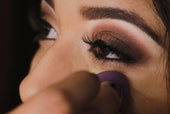
Enhance Your Eyes: A Guide to Eyeliner for Every Eye Shape with Liht Organics
Welcome to the Liht Organics blog, where we believe in celebrating the natural beauty of every eye shape. Today, we'r...
-
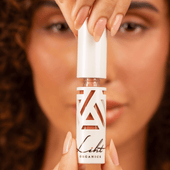
How to do makeup with only lipstick?
At Liht Organics, we believe in the power of clean beauty and the artistry of makeup. Makeup is more than just enhanc...
-

How to Clean Your Makeup Brushes in 6 Simple Steps
Cleaning your makeup brushes may seem like a tedious task, but it's an essential part of your beauty routine. Not onl...
-

Makeup Tips to Help You Look Your Most Flattering on Virtual Meetings!
After more than 2 years of work-from-home arrangement, and possibly hundreds of zoom calls and Google meet virtual me...
-
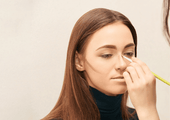
Learn How to Contour with This Simple Guide for Beginners
Want to take your makeup to the next level? Try contouring to achieve a more defined or sculpted look à la the Kardas...
-
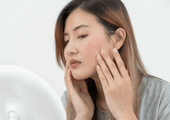
Essential and Easy Makeup Tips for Sensitive Skin
Living with sensitive skin conditions like eczema, psoriasis, and more is already not an easy feat. Throw in makeup t...
-
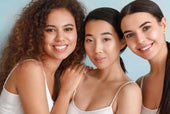
Raising Your Vibration: A Liht Organics Guide for Empowerment This International Women's Day
wp:paragraph As International Women's Day (IWD) approaches, it serves as a powerful reminder of the journey towards s...
-

The Beauty of Going Bare: Why Sleeping with Makeup is a No-No
Have you ever had one of those nights where you're too tired to clean off your makeup? You might believe, "Skipping...
-

Breast Cancer Awareness: Empower Your Beauty with Liht Organics Makeup
During October, we observe Breast Cancer Awareness Month as a way to unite and bring attention to breast cancer whil...
-

The Hidden Dangers of Carmine in Makeup Colorants: Embracing Healthier and Vegan Options
Makeup has become an integral part of our daily routines, allowing us to express our unique beauty. However, as we pr...
-

How can I ensure that my makeup products are organic and won't harm my skin?
When it comes to makeup, it’s important to be mindful of what you’re putting on your skin. With so many products on t...
-
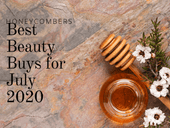
[FEATURE] HONEYCOMBERS – BEST BEAUTY BUYS IN JULY
by Nicole NithiyahWhat’s hot in our beauty hit list: Honest thoughts and top beauty stories we’re swooning over. As w...
-

Liht Organics Introduces Exclusive Gift Sets: Enhance Your Beauty This Festive Season!
As the holiday season approaches and the year draws to a close, Liht Organics is thrilled to present two enchanting g...
-

Get Spooktacular with the Best Halloween Makeup Ideas using Liht Organics' All-Natural, Vegan, and Cruelty-Free Cosmetics!
With Halloween just around the corner, it’s time to let your creativity shine and transform yourself into a spooky,...
-

Celebrating World Animal Day with Liht Organics: Embracing Natural Cruelty-Free Makeup
wp:paragraph As we observe World Animal Day, the team at Liht Organics takes great pride in honoring our pledge to...
-
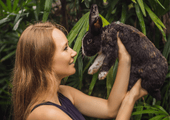
Reasons Why You Should Choose Cruelty-Free Cosmetics Instead!
With increasing exposés unveiling the ugly truth behind animal testing that goes on in the beauty industry, it is lit...
-

Celebrate Singles Day with Makeup That Empowers – 22% Off at LIHT Organics!
This Singles Day, treat yourself to beauty that goes beyond skin-deep. At LIHT Organics, we believe makeup is about s...
-

Preparing for the Cozy Beauty of Autumn: A Preview of Your Fall Look
As we bid farewell to the warm, sun-kissed days of summer, it’s never too early to start dreaming about the enchantin...

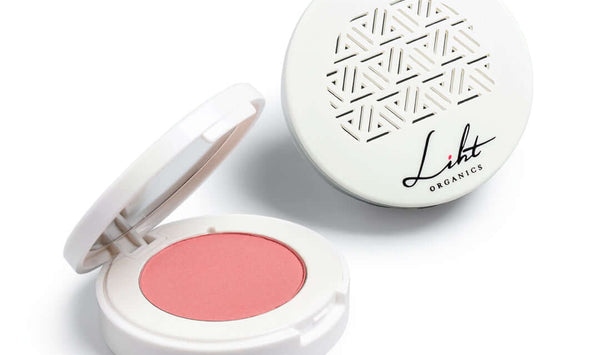
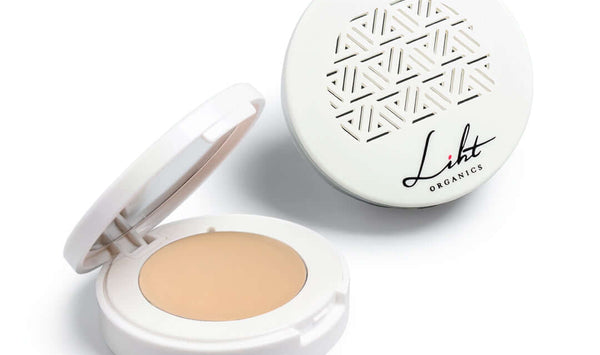
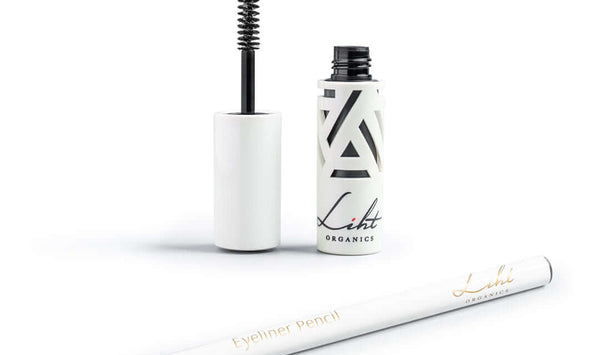
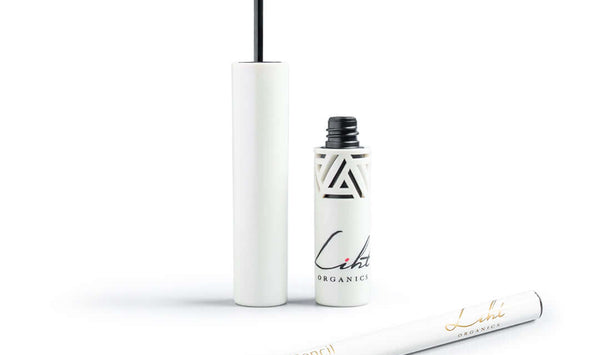
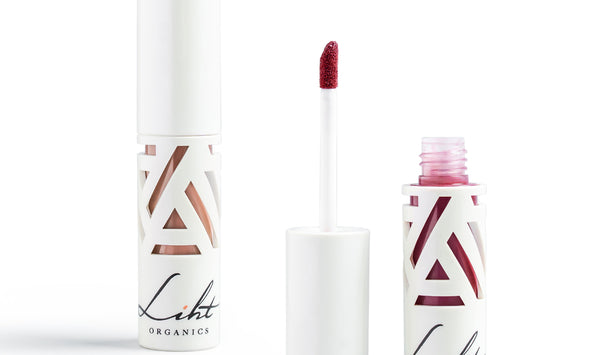
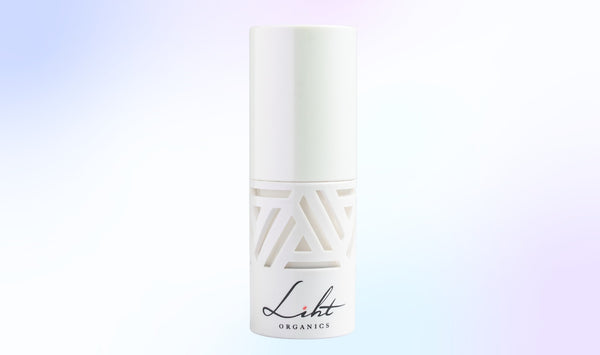

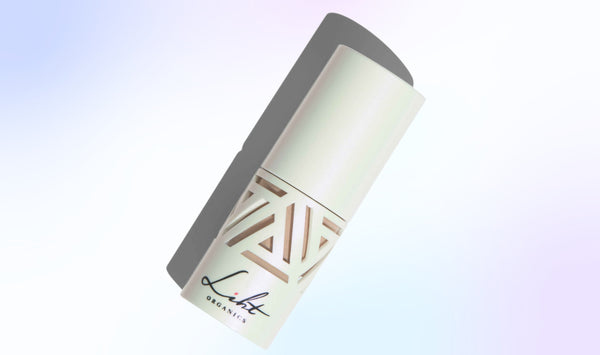
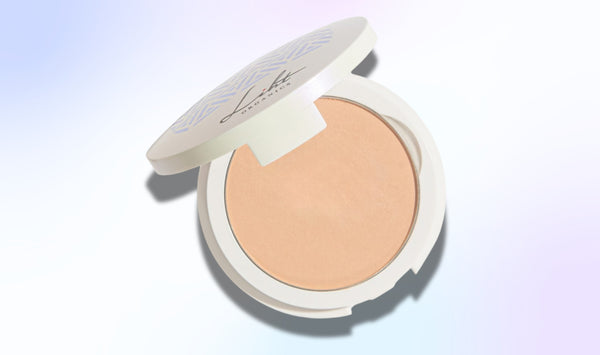
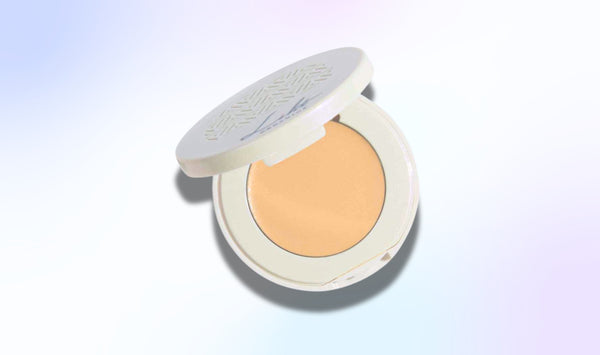
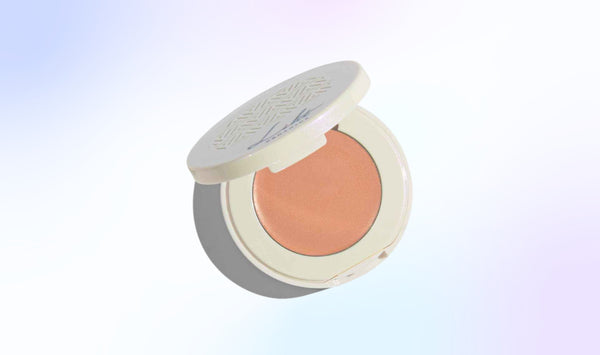
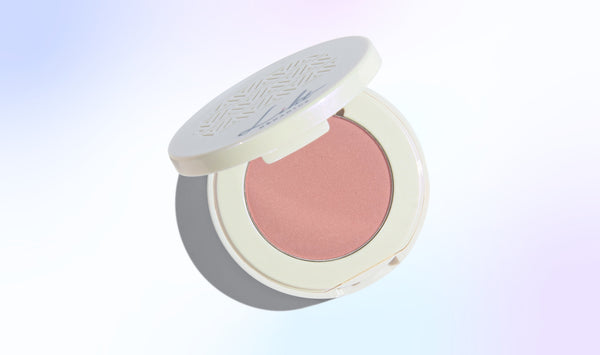
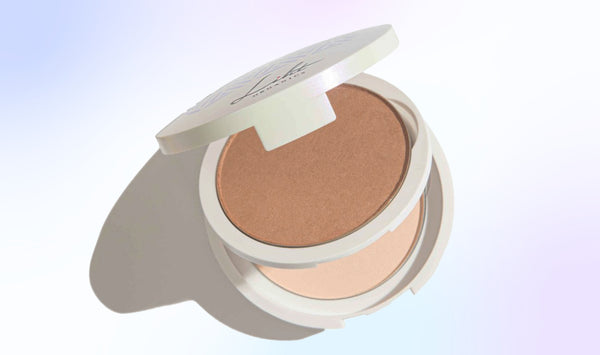
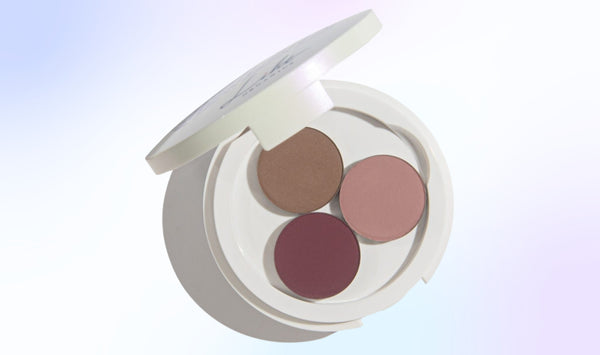
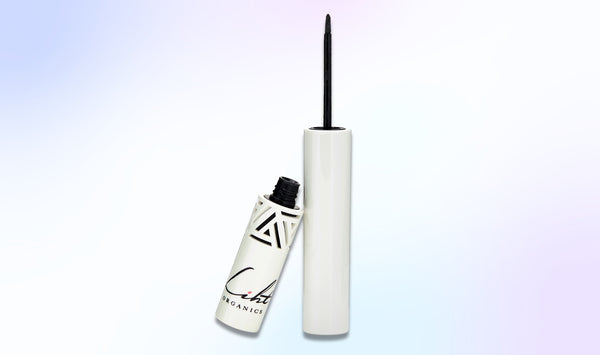
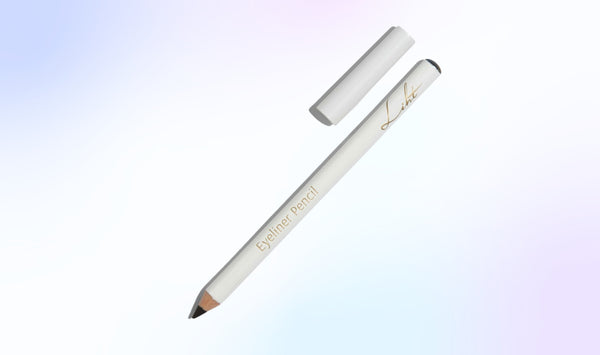
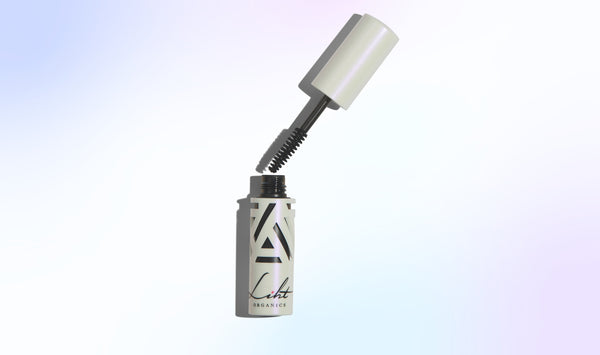
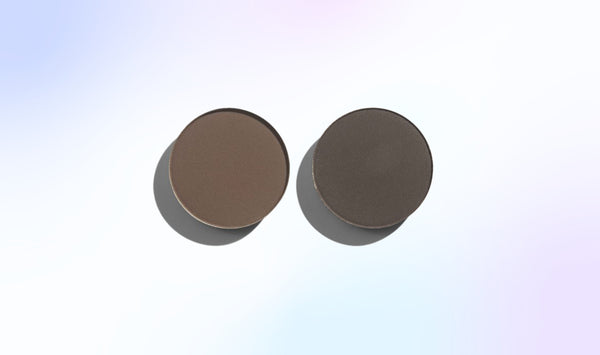
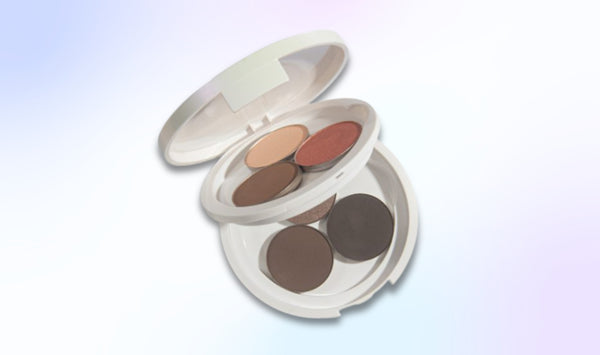
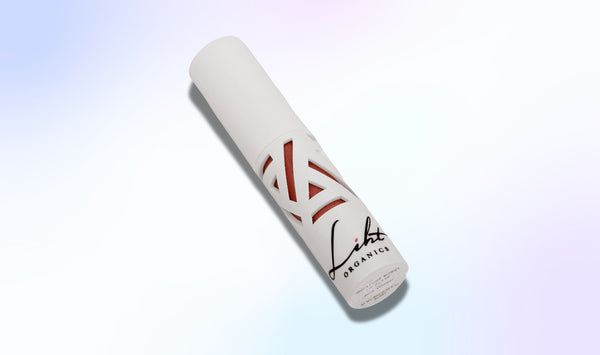
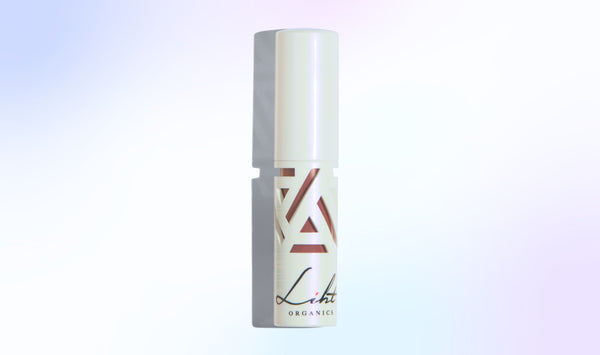
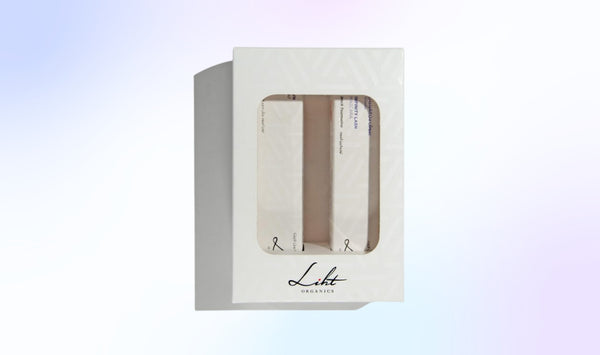
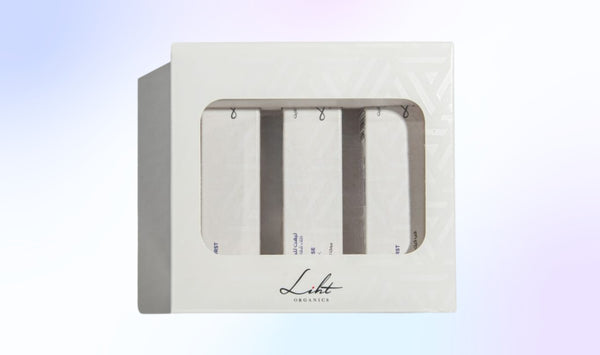


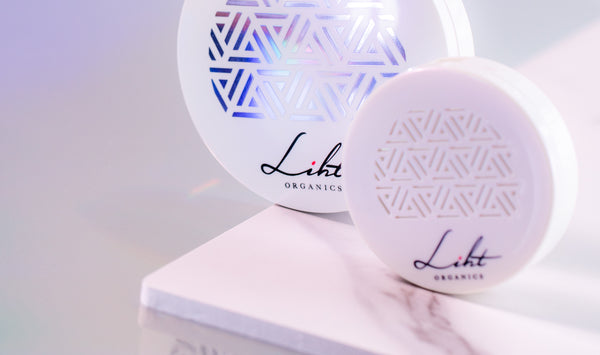
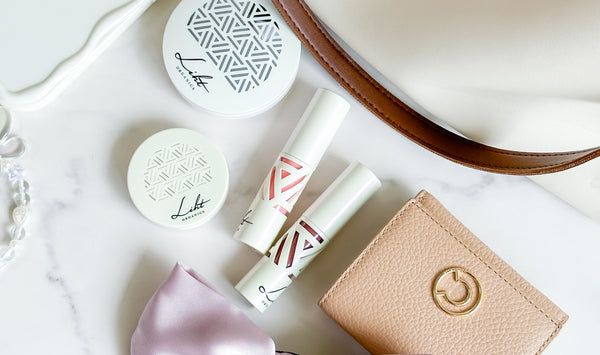
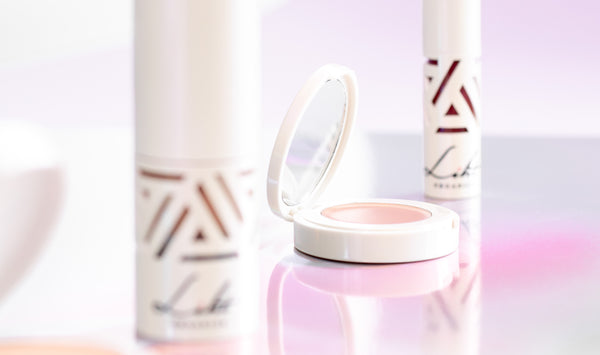




![[FEATURE] Liht Organics to debut at TFWA Asia Pacific show](http://lihtorganics.com/cdn/shop/articles/1_1.png?v=1759328400&width=170)
![[FEATURE] The Singapore-based organic makeup brand is a first-time exhibitor at this year’s TFWA Asia Pacific Exhibition in Singapore in May 2025](http://lihtorganics.com/cdn/shop/articles/2_1.png?v=1759328386&width=170)
![[FEATURE] Travel Retail Awards 2025 finalists - Best Make-up Product Color-Intense Liquid Lipstick – Liht Organics](http://lihtorganics.com/cdn/shop/articles/4_e2f54f0f-fcd1-46e7-9990-fc9d29e35131.png?v=1759328382&width=170)
![[FEATURE] Liht Organics targets expansion in travel retail](http://lihtorganics.com/cdn/shop/articles/3_1.png?v=1759328346&width=170)
































































